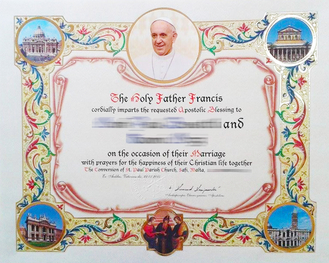Reflections on Embryo Freezing
by Dr Arthur Galea Salomone - President Cana Movement
The Prime Minister is on record stating that he is “resolute on the introduction of embryo freezing” and that “any IVF law must have the function of freezing for it to be successful.”
Whereas the Embryo Protection Act, in its current form, allows the freezing of (as yet unfertilised) female oocytes, embryo freezing involves the freezing of life after conception.
If the Prime Minister’s stands have been reported correctly, they are objectionable on a number of grounds. Firstly, the amendments to the Embryo Protection Act are supposedly under consideration and review by the Inter Ministerial Committee. The Prime Minister’s statement pre-empts the complex legal, ethical and medical considerations inherent in any discussion relating to embryo freezing and rushes to a pre-determined conclusion. Prudence would suggest that the Prime Minister should have refrained from expressing his opinion in such absolute terms, if the Inter Ministerial Committee is to be allowed to perfume its task serenely and if the consultation process is really intended to be consultative in substance and not merely in form.
Secondly the Prime Minister’s reported assertion that any IVF law must include freezing in order to be successful is contradicted by Government’s own statistics, which confirm that the current IVF programme, which excludes embryo freezing, enjoys a comparable success rate to IVF treatments in other European countries which allow embryo freezing.
Thirdly the introduction of embryo freezing is predicated on a utilitarian view of conception which considers embryos as masses of cells which may be used selectively and/or set aside, depending on the success or failure of the in vitro fertilisation process. Human life begins at conception and it should be treated with respect and dignity from the moment of conception. The ethical dilemmas which arise in respect of frozen embryos are many. What are the consequences of depriving embryos of immediate maternal reception and gestation? Does the possible prospect of an increased success rate of IVF, justify the risk of exposing embryos to physical harm or death, as a result of freezing and thawing? What happens to frozen embryos that are subsequently unutilised? Who is to decide on the destiny of unutilised embryos? These difficult issues inevitably arise when embryos are treated as commodities and their destiny becomes dependent on the choices of man who attempts to role play God.
Whereas the desire to bear and/or rear children is natural and noble, and efforts to improve fertility are laudable, they should not justify the selective freezing and/or subsequent discarding of embryos. Children are gifts and not entitlements. IFV policies should therefore not relegate the rights of the unborn child to the desire to bear children, no matter how noble that desire may be. The balance between the rights of the unborn child and the interests of infertile couples is currently struck by an Embryo Protection Act which allows freezing of (as yet unfertilised) female oocytes without embryo freezing and that balance should not be disturbed to the detriment of the unborn child.
Proponents of embryo freezing often attempt to mitigate the attendant difficulties of embryo stockpiling by suggesting that frozen embryos, could be put up for adoption rather than destroyed. Evidently this has not been borne out by the countries where embryo freezing has been introduced and stockpiling of embryos remains a controversial issue. Adoption of frozen embryos is not an easy solution. Sadly, rejected embryos are often perceived as inferior and those which are unwanted are often manipulated or discarded.
The freezing and discarding of embryos is the precursor to the introduction of abortion. If the frozen embryos can be justifiably discarded outside the womb, the next step is to justify abortion of the unborn child within the womb. Once human life is commoditised, it is a matter of time before abortion is legalised. The justifications will come in various shapes and forms. Initially the extreme cases where the mother’s life is at risk or the unwanted pregnancy of a raped mother will be cited. Selective access to abortion for those who have the means to travel overseas to abortion clinics will be portrayed as an injustice for those who resort to clandestine abortions. Risks of clandestine abortions, it will be argued, may be mitigated by having abortion in a controlled environment.
Finally the pro-choice argument will rear its head, claiming that women are entitled, as of right, to decide upon the destiny of their body and human life within. Meanwhile the voice, choice and rights of the unborn child will be discarded, as the mutilation and murder of unborn children are sugar coated in officialdom, with the silent conspiracy of omission of those who should have stood up for the unborn child.
It is hoped that the Prime Minister will reconsider his misplaced resoluteness to introduce embryo freezing and that civic society and politicians of goodwill from both sides of the political spectrum will take a stand in favour of the unborn child, be it within or outside the womb.
This article was also published in The Times of Malta of Monday 14th September 2015, under Talking Point.
comments powered byDisqus


